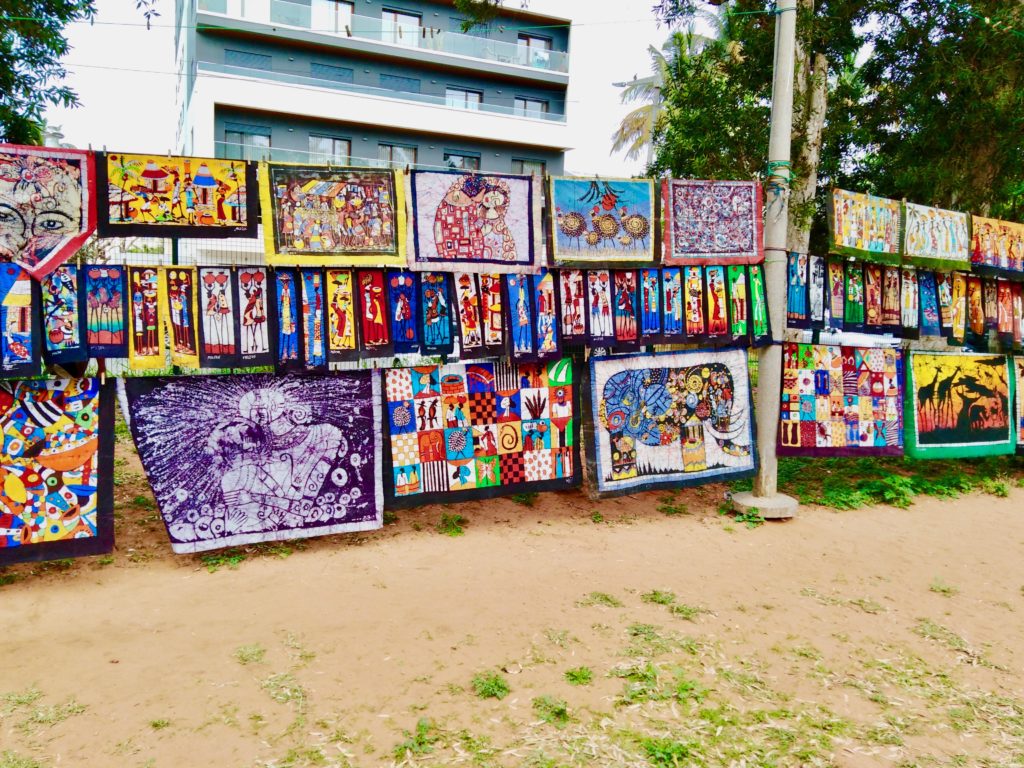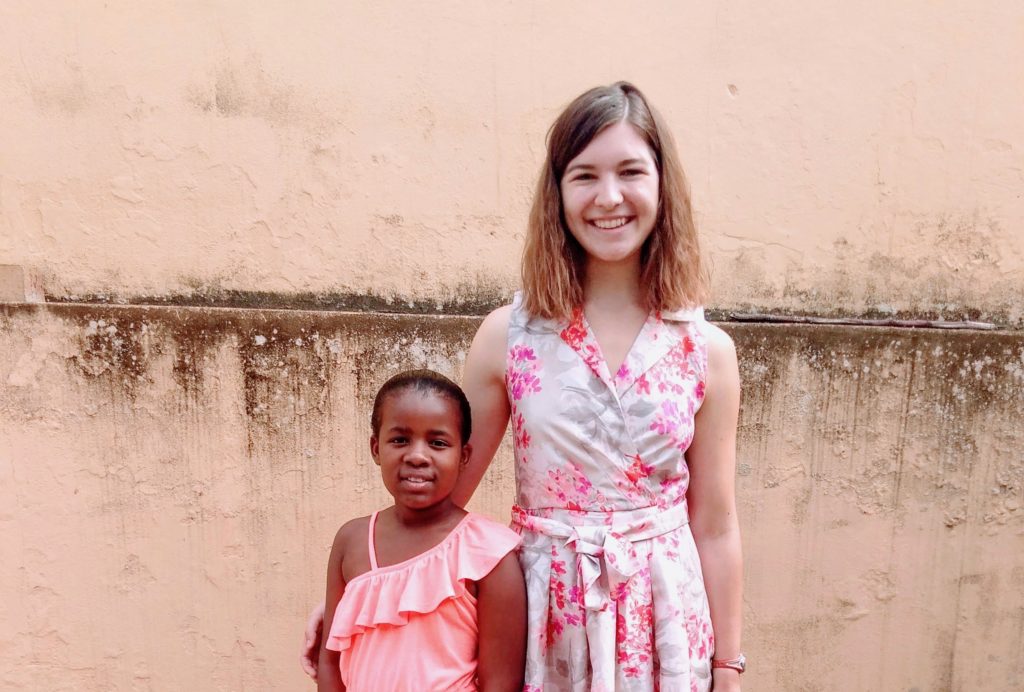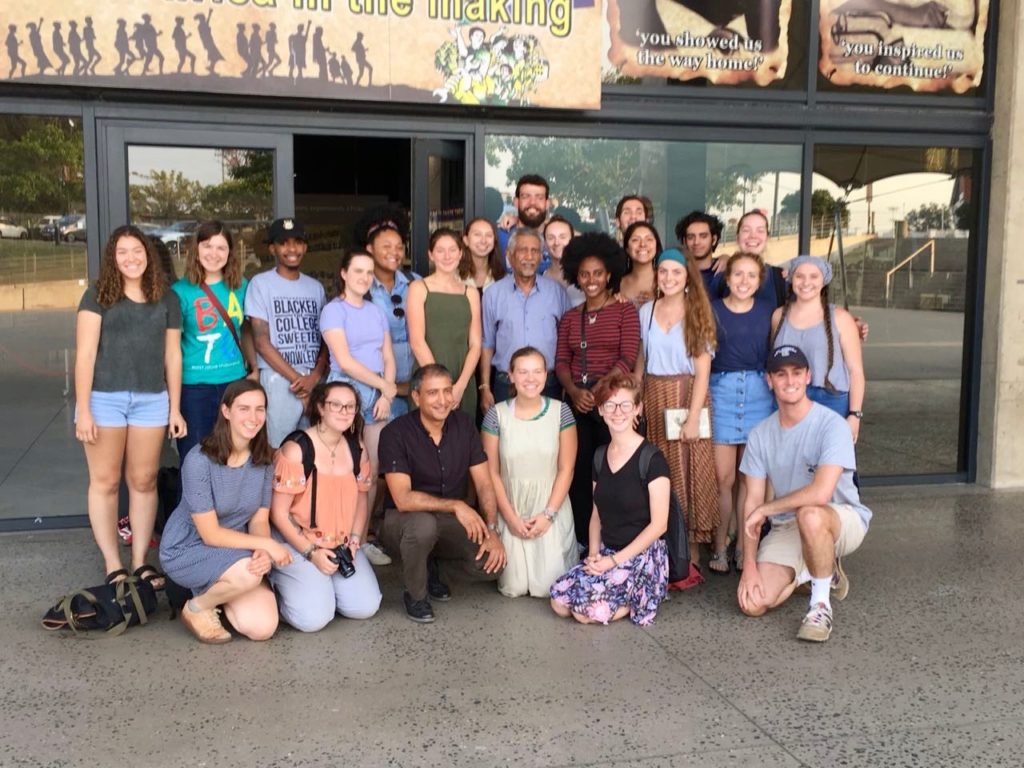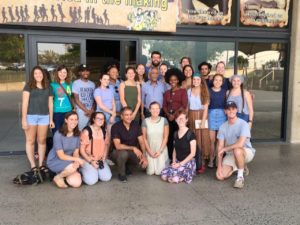
Photo of the Day: September 24, 2018

By Admin


By Admin


By Admin


The round of Uno has been going on a good 10 minutes but neither Sthembeka nor her Gogo are closer to winning than when the game started. As they take turns drawing in pursuit of the next playable card, their hands grow fatter and fatter. “Sthembeka, no!” Gogo moans, half laughing. I peer over at Sthembeka’s hand. Pleasantly surprised at what I see, I point at her rainbow card and whisper, “You can play that. Let’s end this quickly and beat Gogo.” Sthembeka snickers. “No,” she whispers back, returning to her routine of cheerily drawing, concealing, and drawing again. Meanwhile, poor Gogo takes another card, hoping that it can wrap up the round. “Don’t you see?” Gogo explains. “Sthembeka knows what she’s doing. She just wants to keep playing.”

As I watch Sthembeka fixate on Uno night after night, I begin to understand that the nine-year-old girl doesn’t care about winning. She is determined to enjoy herself, even when others — like me — have long forgotten what being a kid means. If Gogo, whose eyes often cannot recognise the numbers written on the cards, plays incorrectly, Sthembeka immediately catches it like a cop in action. “Gogo, you can’t do that!” she bellows, handing Gogo’s card back to her. On the other hand, Sthembeka’s shout turns victorious if she decides to — and succeeds — in running out of cards before Gogo and I. “Checkmate!” she celebrates, soon after asking which of us would like her help as we vie for last place. I used to tell Sthembeka that “checkmate is only for chess” and “Uno is just a game of luck,” but I later realised how politically correct I sounded. Maybe Sthembeka’s stubbornness has more to offer than my ingrained political correctness.

“Let’s do something special for our birthdays.” When our favourite soapie breaks for a commercial, Sthembeka keenly brings this up. Since discovering our birthdays are one day apart, the idea of a special activity has been on her mind. “What do you want to do? Do you like cake?” I reply. “Hmmm…” Sthembeka seems puzzled, but only for a few seconds. “Let’s have a treasure hunt,” she beams. “You buy me a present, I’ll buy you a present, and then we’ll hide them in the house.” She adds, “And we have to write 10 clues to help us find them.” Why did I not think of that? Perhaps I had spent too many years stooped in my studies to recall how adventurous and exhilarating treasure hunts are!
“Good morning, Francis.” Every morning as I finish my last bites of porridge, Sthembeka emerges from her room in her green uniform, greeting me with a name I have never identified with. My name is Francine and she knows it. My first instinct is to correct her, but as I watch her pour herself some cornflakes and add a hearty portion of sugar, I smile. “Let her call me whatever she wants,” I think to myself. “It’s okay to be a kid.”
By Admin

“I don’t think you’ll understand the magnitude of your conversation with Mac Maharaj until long afterward.”
As SIT South Africa academic director Imraan Buccus informed us that the ANC activist, 12-year political prisoner on Robben Island, and long-time friend of Nelson Mandela would visit us, his voice carried an elevated tone. “You in many respects are meeting someone as important to the Struggle as Nelson Mandela,” he told us.

When the students of our program met 83-year-old Maharaj at the South Africa in the Making exhibit in Durban’s Moses Mabhida Stadium, we encountered a charming, grandfatherly man who told us anecdotes from his extraordinary life that were peppered with humor and full of dignity. Maharaj pointed us to the example of Nelson Mandela, specifically highlighting how Mandela’s life holds lessons on true leadership.
According to Maharaj, Mandela-style leadership involves not taking away anybody’s sense of personal dignity. Maharaj recounted how, while in prison, Mandela had led fellow prisoners to slow their walking pace after the prison warders had insisted they humiliate themselves by running while crouched over. Maharaj also views Mandela leadership as taking ownership of the consequences of one’s actions. Mandela always accepted burdens placed upon him or induced by himself. That alone is a top quality that can make leaders who previously had no leadership inclination, Maharaj said.
Maharaj worked as Minister of Transport under Mandela, served as spokesperson for former President Jacob Zuma, and taught as faculty of Bennington College in the United States. He spoke with great pride in his country, noting its progress since his involvement in the underground movement and looking with optimism toward its future. He left the SIT students with the encouraging words that democracies give individuals the power to have a voice that inspires political and social change.
History has a way of remembering some names while making less of others, and despite Mac Maharaj’s being less well known on the international stage than Nelson Mandela’s, his story and legacy resonates with those who take the time to hear the story of his walk to freedom.
By Admin


I am told that I was a rambunctious 5-year-old, so high-spirited that at my grandparents’ 50th anniversary my mom pasted a nametag on my shirt that said: Don’t talk to me.

In elementary my mischievous days came to a halt, but my fire manifested in other ways. For 5th grade English class, I gave a boisterous speech about why Mike Huckabee, a then-rising politician, should become US president. Around this time, inspired by my scholarly brother, I also developed a habit of studying that earned me a reputation later on.
I graduated high school in a class of 13 students, from the same school building I had been at since kindergarten. Though my school was indeed tiny, it allowed me to spread my wings as a four-sport athlete, a multi-band musician, and an intellectually curious student. Many people called me competitive, but my fire arose out of a fear of not reaching my potential and a desire to make a difference, however trifling my actions might be.
After high school, I left my close-knit school community behind, traded my formal sports for heavy weights, and these days I rarely perform musically. I have now traveled and researched in 16 countries, I study at a university I had previously only dreamed of attending, and write articles for a magazine which are read by more than just family.
From childhood to adulthood, I have prided myself on the change that comes with making progress, but the deepest parts of myself have not changed. I have always had a stubborn spirit and a passionate desire to instill change, so whether I am arguing with my brother or writing about the land conflict in South Africa, I will remain me.

1 Kipling Road • Brattleboro, VT 05302 • 802 257-7751 • 800 257-7751 (toll-free in the US)
SIT is a private nonprofit institution of higher education.
© Copyright World Learning, Inc.



